Telangana
Telangana
The Challenge
The western and southern parts of Telangana receive scanty rainfall that makes the region highly prone to droughts. Climate change has led to uncertain weather and degradation of natural resources, which is adversely impacting agriculture in the region. Moreover, farmers adopt unsustainable farming practices due to a lack of awareness and access to technical knowledge. All this is leading to loss of livelihoods, poor socio-economic wellbeing and degradation of natural resources.
WOTR’s Approach
WOTR’s focus in Telangana is primarily on building farmer’s adaptive capacities through large scale extension support. Community-led, low cost economic agriculture interventions are taken as entry point activities. We aim to build the readiness of the farming community in dealing with climate and market uncertainties. This is done by securing the social capital within the villages in the form of Farmer Groups, which are later federated to ensure their long term sustainability.
Presence
WOTR is currently working in 91 villages across 5 blocks in the 4 districts of the state. These districts are Khammam, Narayan Peth, Ranga Reddy, and Sanga Reddy.
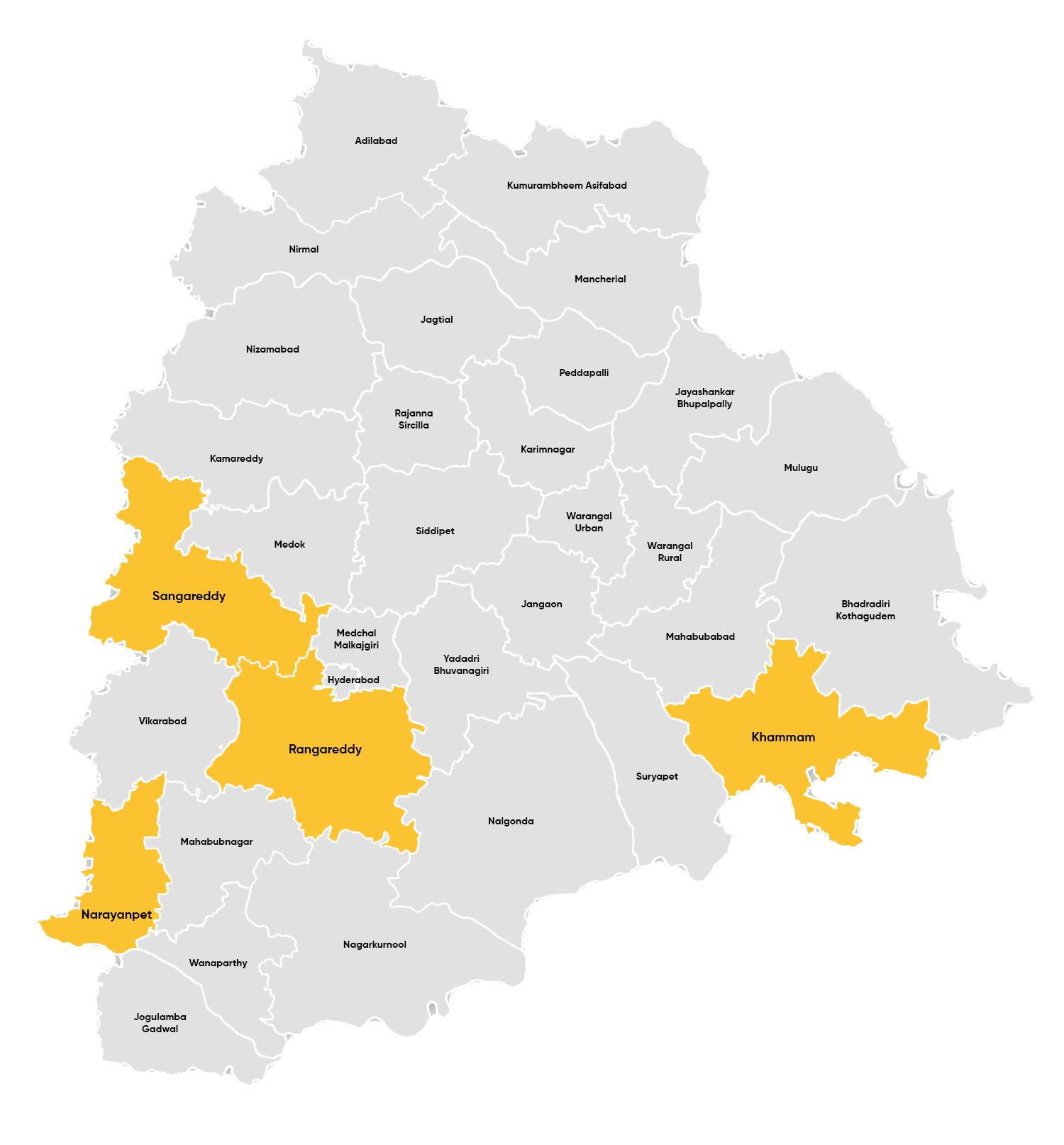
Flagship Programmes
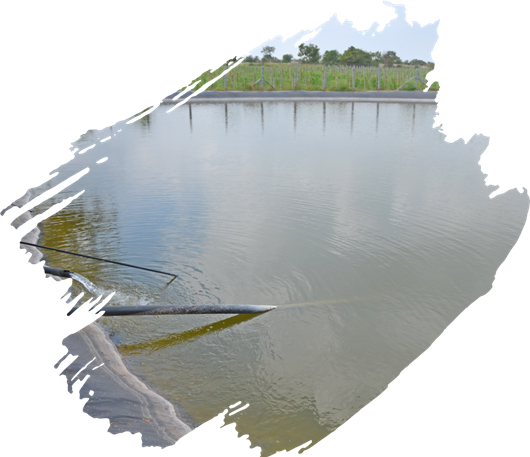
Water and Land Management
WOTR is encouraging community participation in implementing the integrated watershed development program. Besides reviving the groundwater table, effective micro-irrigation technologies have been introduced through the Water Integrated Agri-support System (WiCAS) model. WOTR is building people’s capacities for village-level water management and ensuring efficient use of water in agriculture. The interventions are backed by action research and scientific studies.
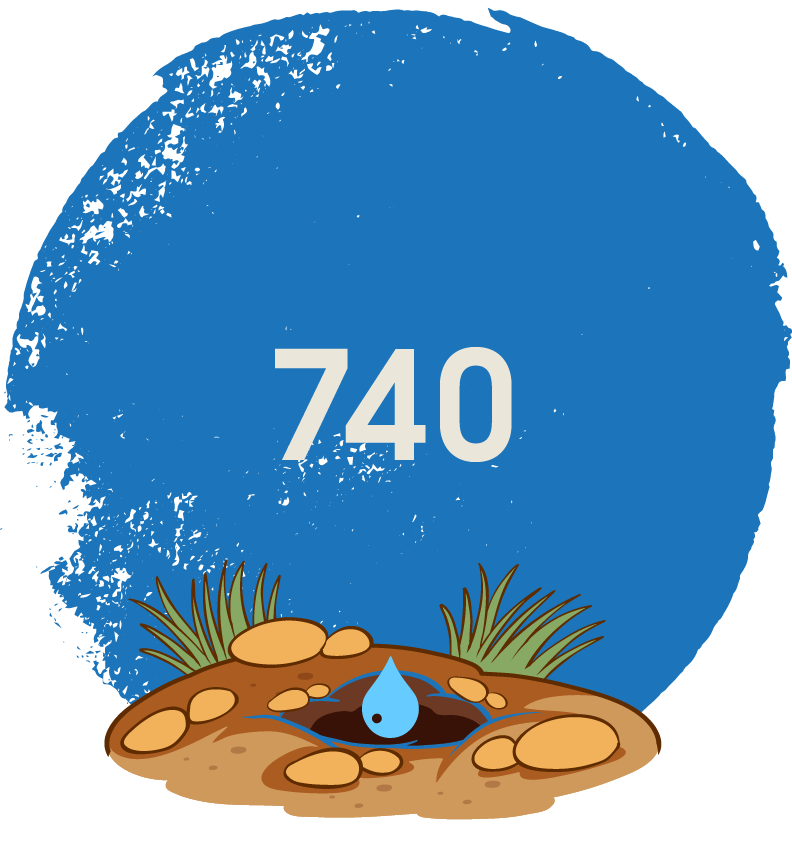
hectares of land treated under various watershed initiatives
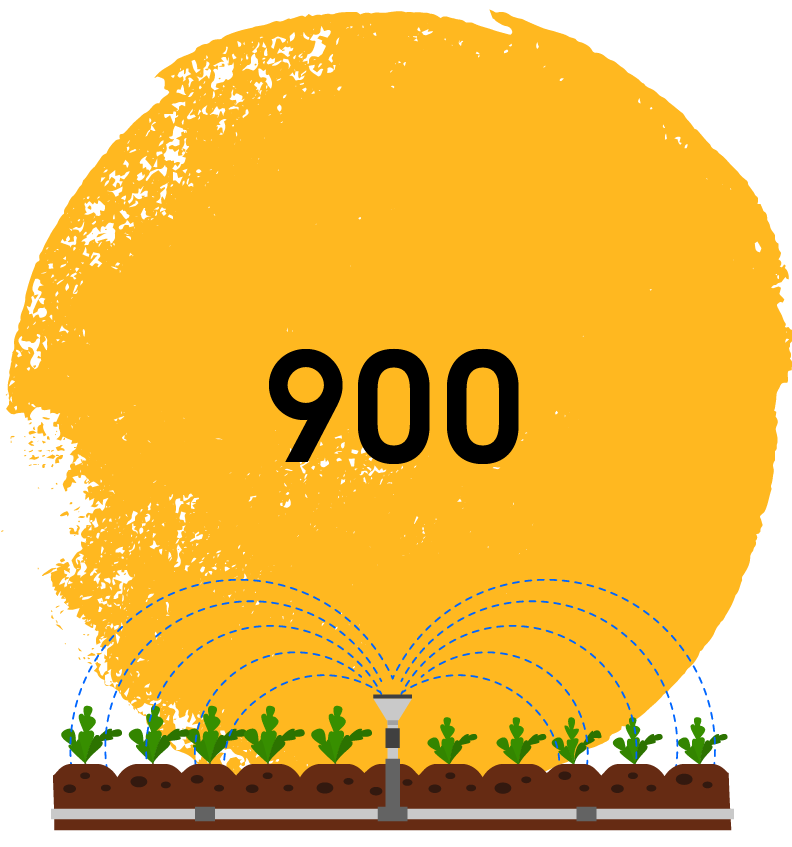
hectares land covered under drip and sprinkler irrigation
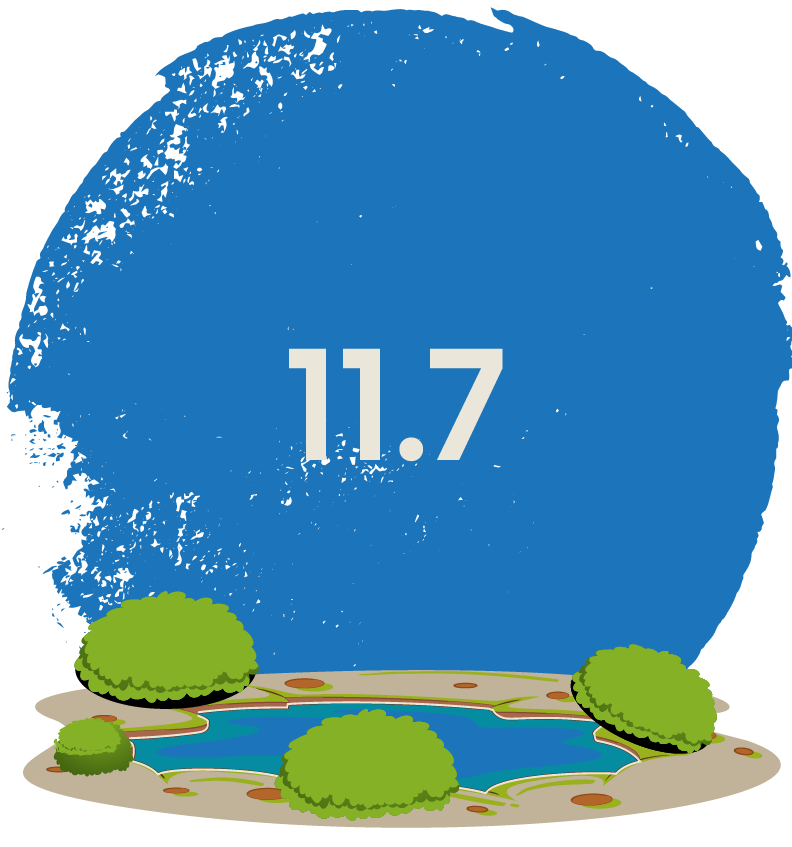
million litres of water harvesting potential created through farm ponds, percolation and mini percolation tanks
Climate Resilient Agriculture
WOTR is working with the communities to build climate resilience in agriculture by promoting various sustainable farming practices. Our Farmer Field Schools are educational hubs that disseminate information and build adaptive capacities of farmers on low-cost, eco-friendly farming techniques. In addition, WOTR’s FarmPrecise app is helping farmers make informed decisions with accurate daily/seasonal crop management data.
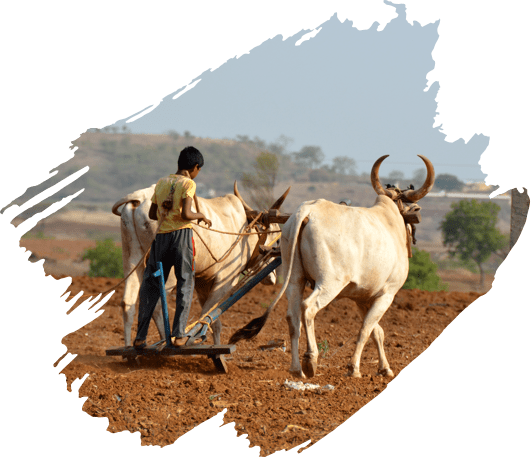
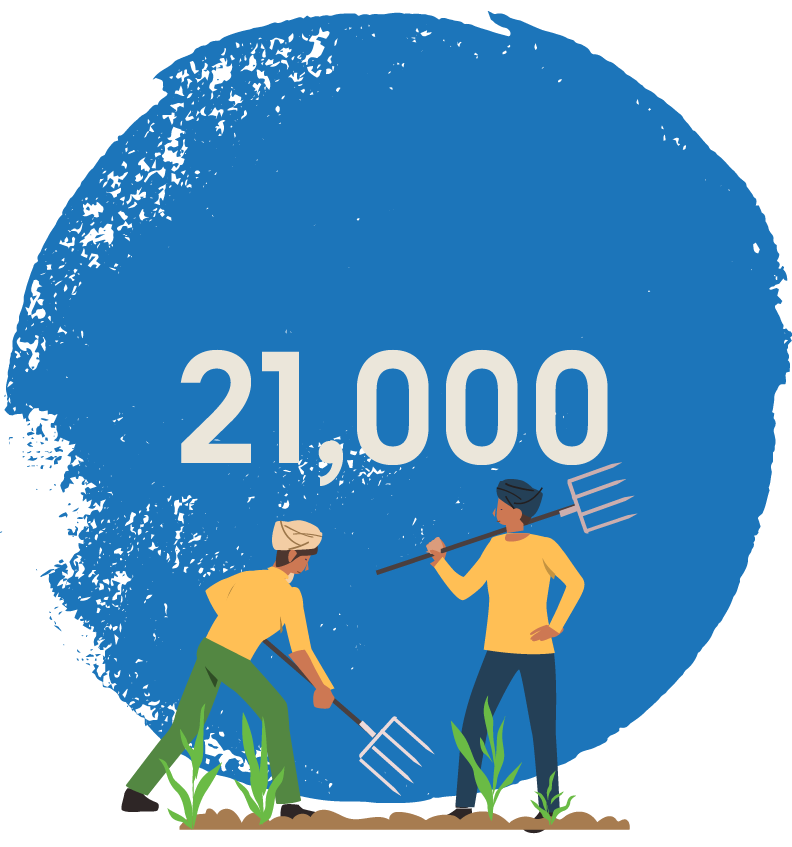
farmers and 5,700 ha land covered under climate resilient agriculture

farmers accessing FarmPrecise application for locale-specific, weather-based crop advisories
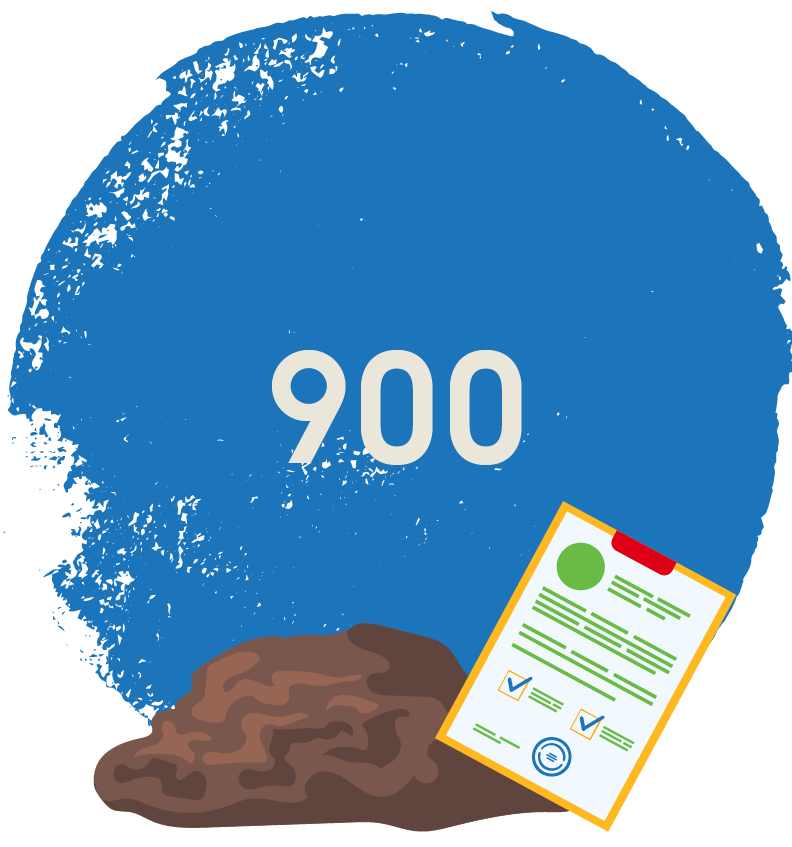
soil health cards distributed
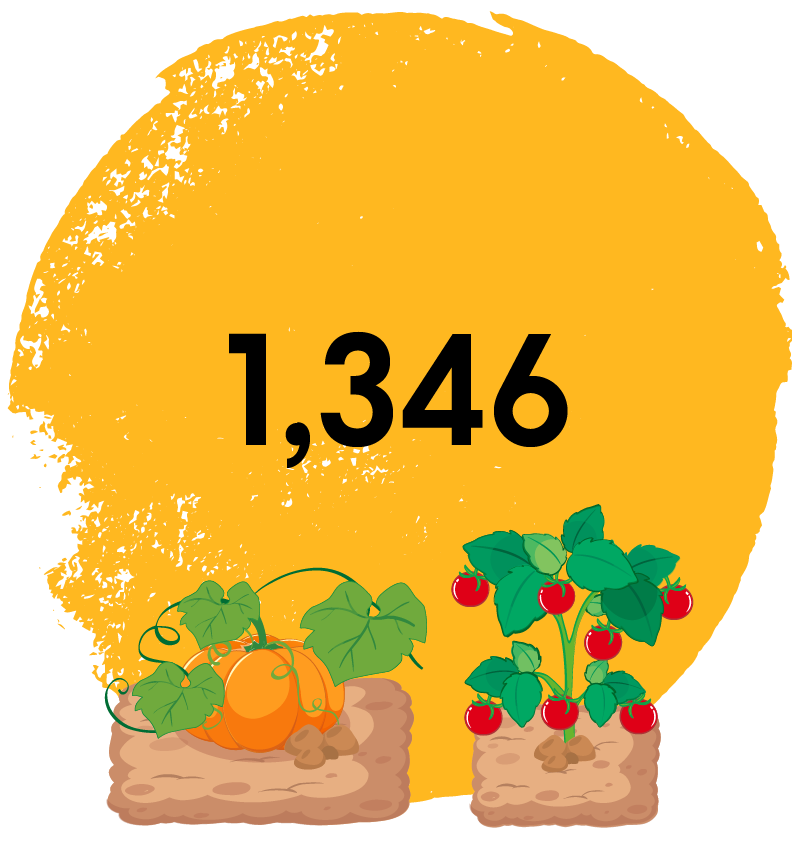
households supported to undertake kitchen gardening
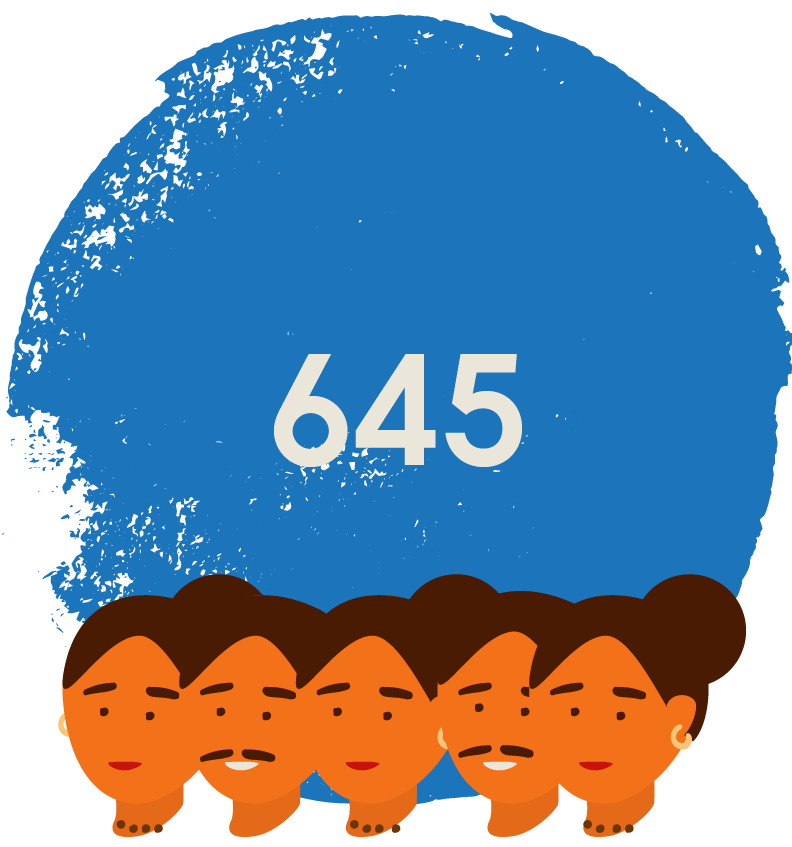
members registered in the newly formed FPO in Rangareddy district
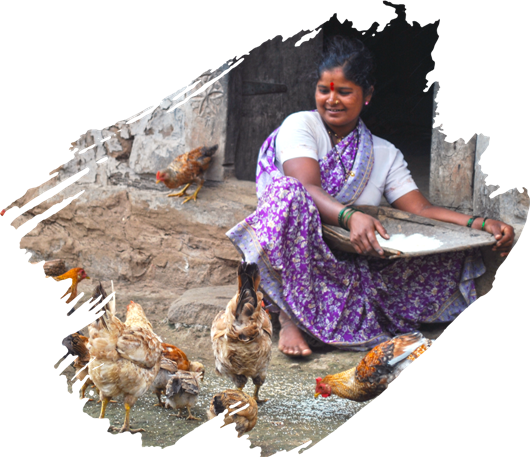
Livelihoods
Besides agriculture, daily wage labour is another source of income for the people of rural Telangana. To strengthen local livelihoods, WOTR is introducing alternate options, especially for the small and marginal farming households. We educate and train people to adopt agri-allied activities such as goat rearing and poultry management.
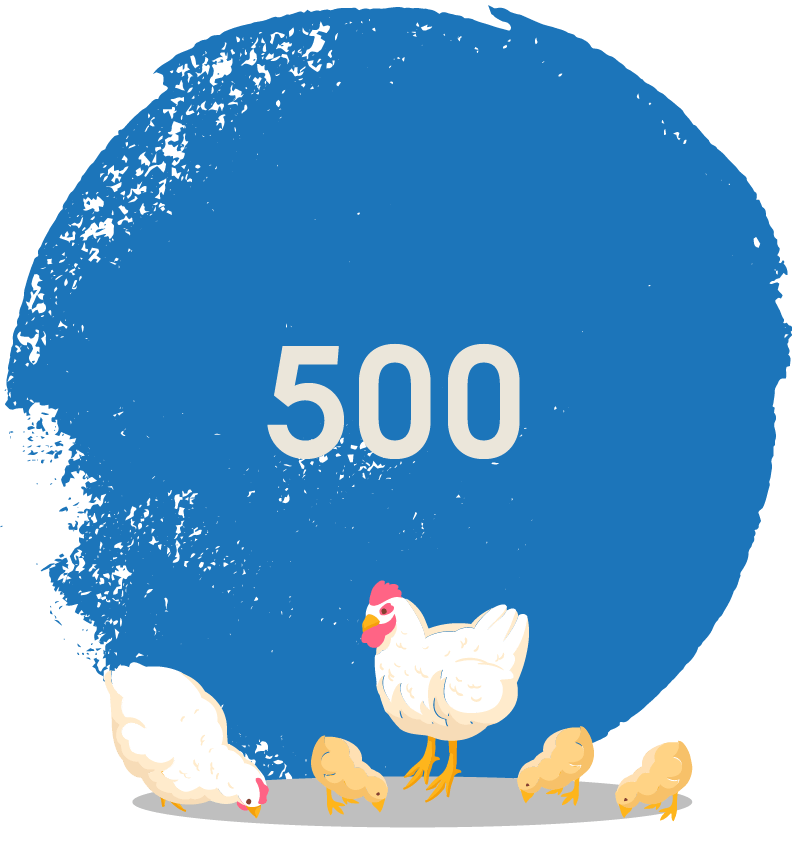
households in 22 villages supported for backyard poultry
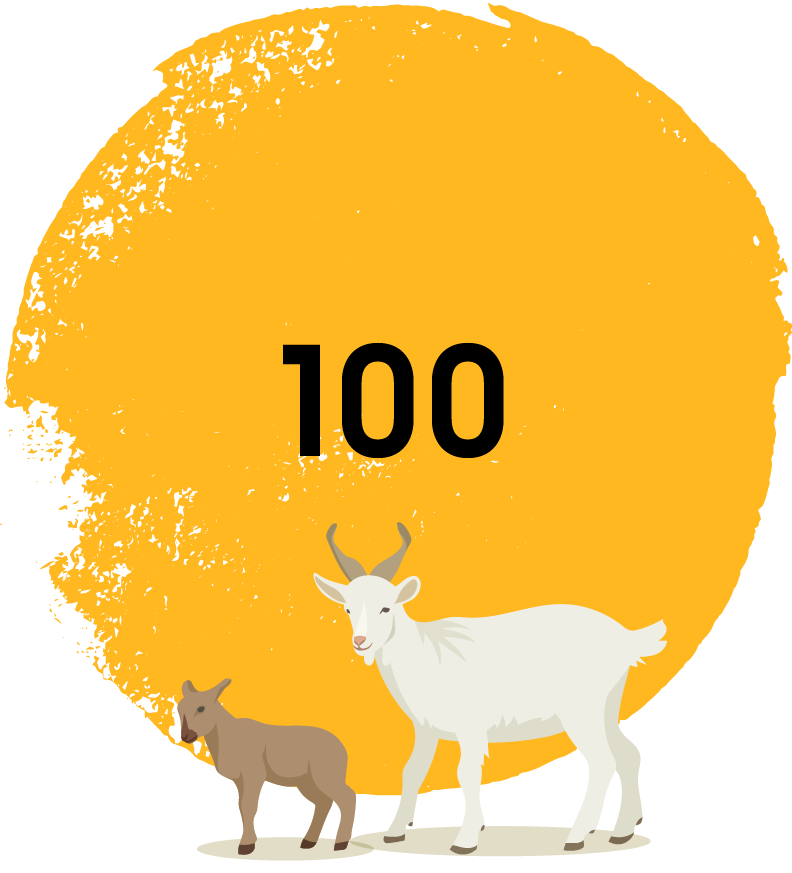
households adopted goat rearing for alternate income
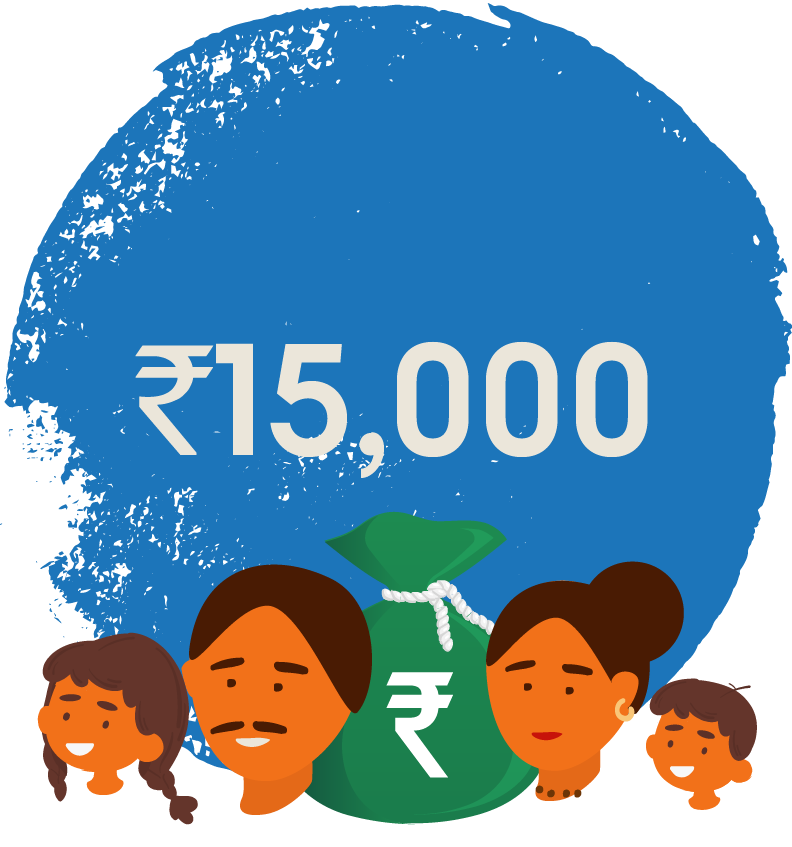
of additional average annual income secured through alternate livelihood activities
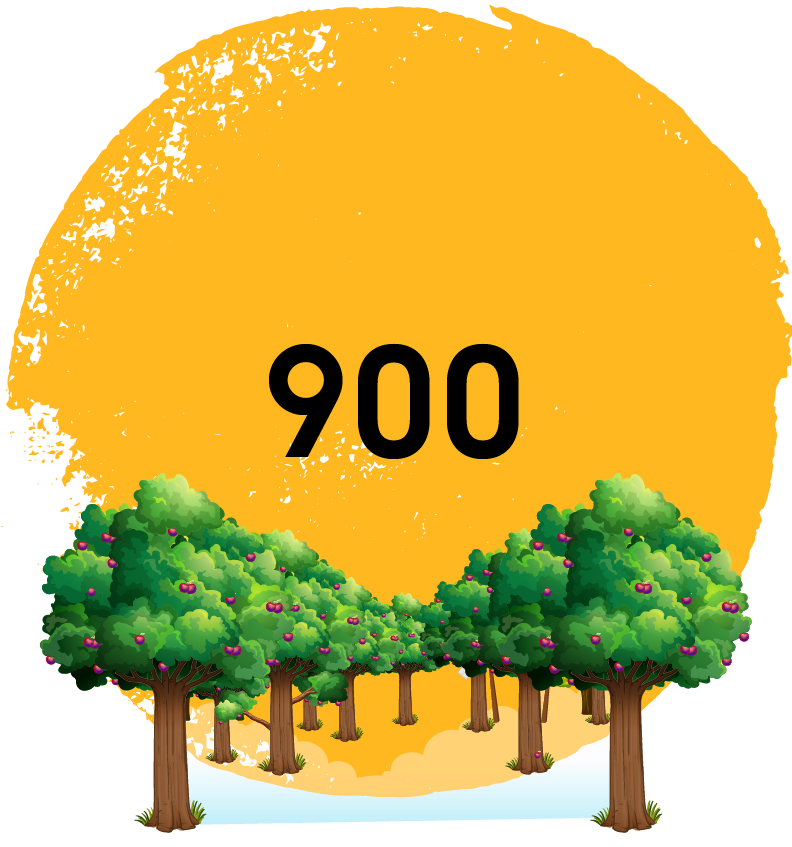
households have adopted tree crop farming system as an alternate livelihood activity
WOTR is collaborating with government agencies for the seamless implementation of various government-led initiatives. This includes MGNREGS, promotion of fodder cultivation, micro-irrigation, women & family welfare programs.
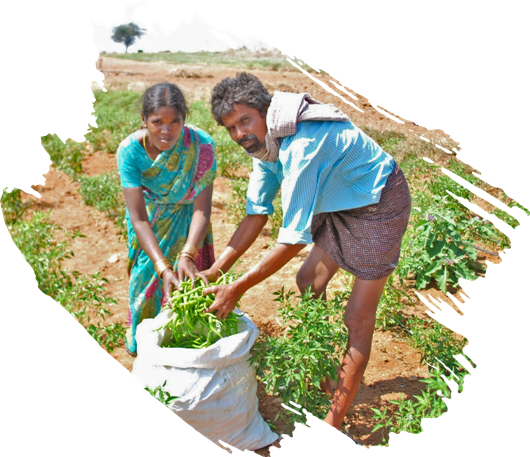
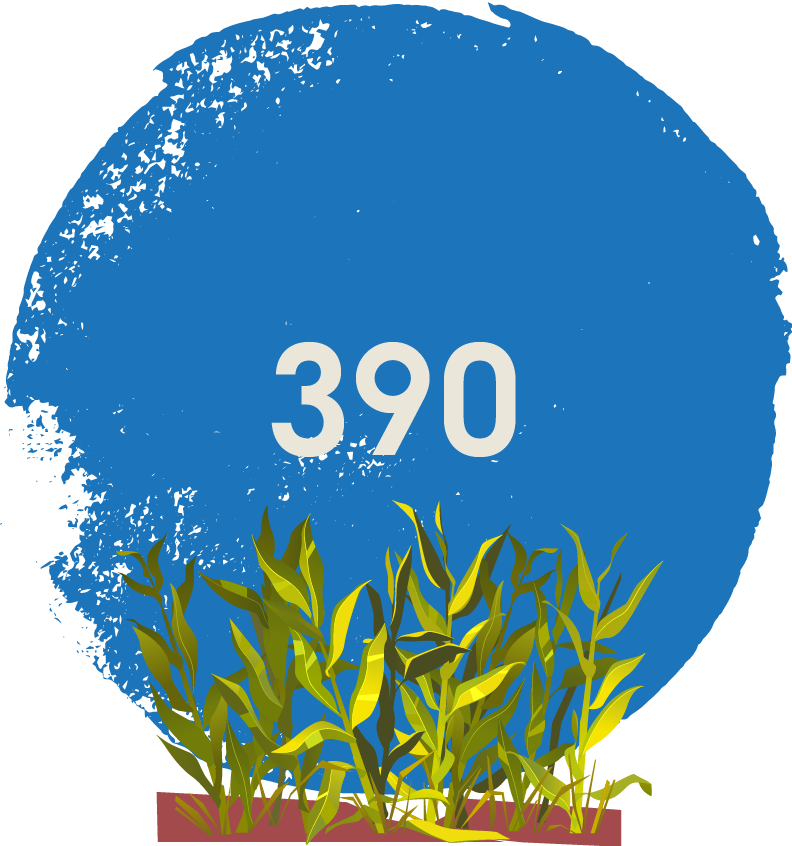
farmers from 13 villages of Rangareddy district supported to grow better fodder varieties in convergence with Regional Fodder center, Hyderabad
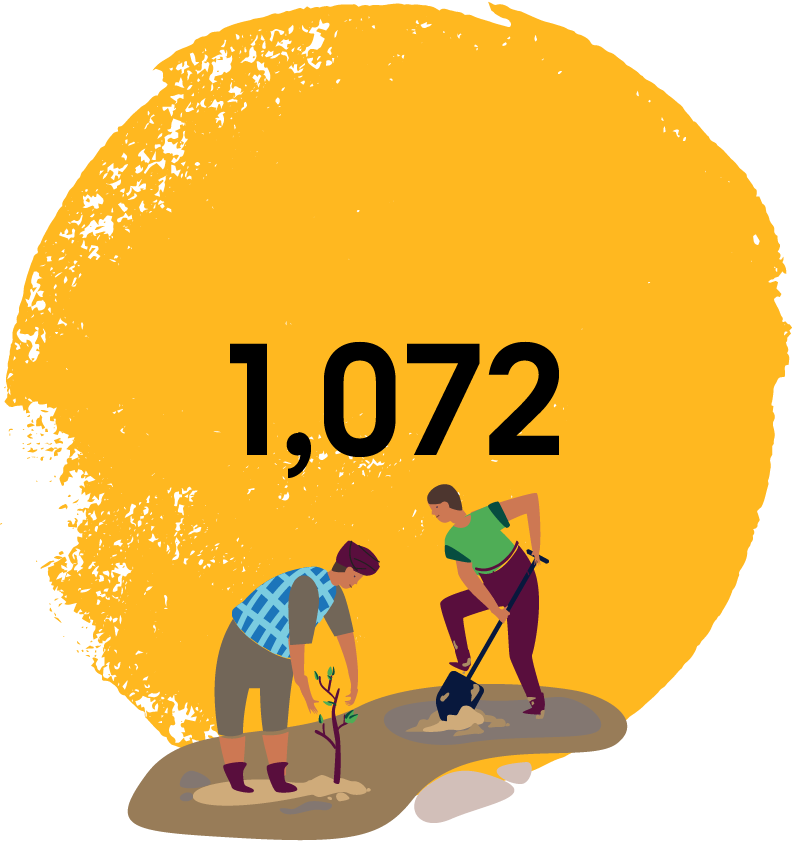
farmers trained to use improved seed varieties and crop selection in collaboration with ICRISAT and CRIDA
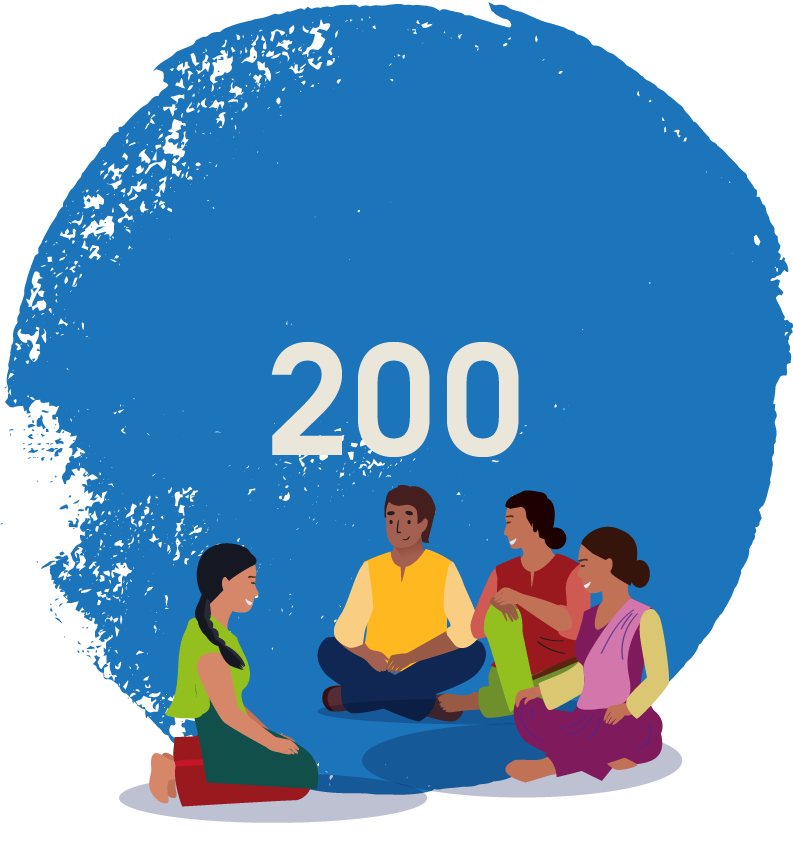
members of 20 SHGs trained under Dattopant Thengadi National Board for Workers Education and Development (Ministry of Labour)
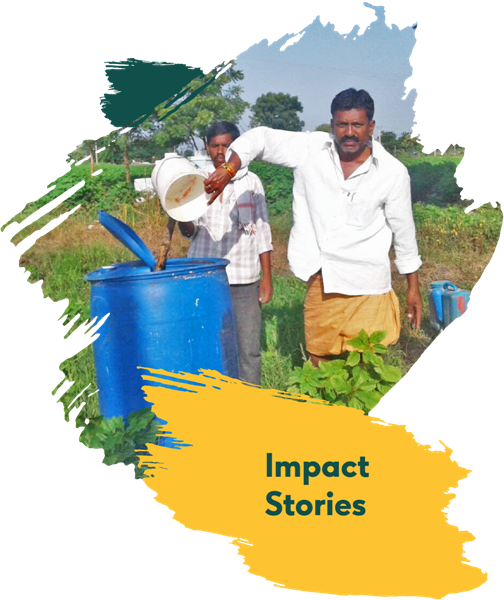
Diversification for Better Returns
Ramulu was feeling dejected due to consecutive crop failure for about 4 years and poor income which was inadequate to take care of his family needs. However, his life changed once Ramulu started learning about climate-resilient agriculture practices promoted by WOTR.
By adopting sustainable practices such as System of Rice Intensification and organic farming, Ramulu has diversified his cropping pattern and is also growing vegetables which has reduced the cost of cultivation and enhanced his income.


